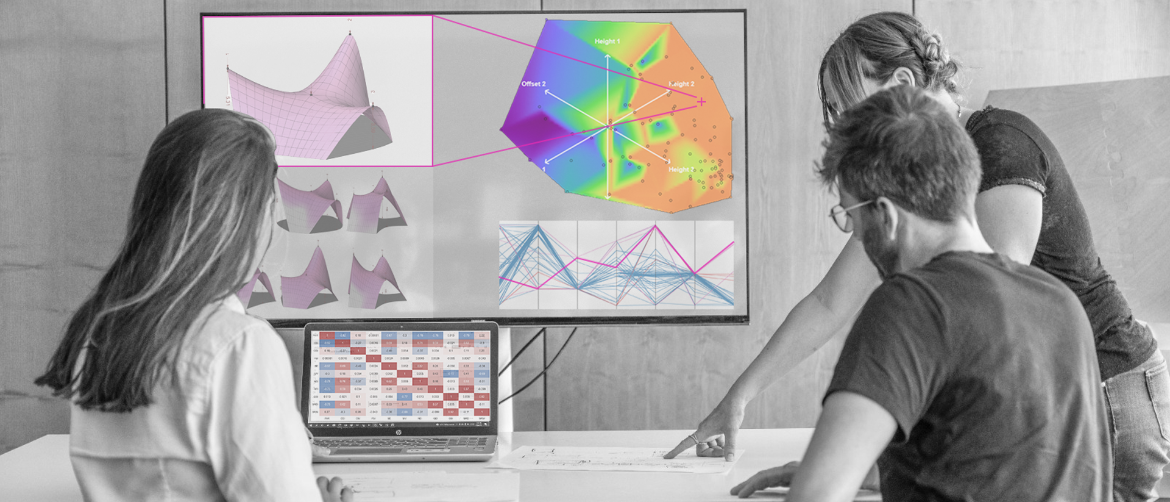COMPUTATIONAL DESIGN AND AI FOR DESIGNING CLIMATE-NEUTRAL BUILDINGS: INVESTIGATION OF SOCIAL AND TECHNICAL POTENTIALS AND CHALLENGES OF THE APPLICATION OF COMPUTATIONAL DESIGN METHODS IN BUILDING DESIGN PRACTICE
The digitalisation of the planning and construction practice offers software solutions for various problems and tasks, such as 3D-modelling, resource reduction, project coordination or documentation. Such methods include building information modelling, generative design, energy simulation, optimisation and artificial intelligence (AI). These methods are being developed and tested in research environments and individual architectural firms. Computational methods can contribute in various ways to the design of carbon-neutral buildings and retrofits. However, their application in practice, especially in the early design phase that is important for climate neutrality, falls short of their potential. Existing studies mainly focus on the potential to improve and increase the efficiency of specific design and construction methods. There is a lack of research on whether and how these computational methods are used and to what extent they contribute to improving the carbon footprint of the built environment.
This interdisciplinary research project sheds light on the decision-making backgrounds of computational methods and their conditions of use for the design of climate-neutral buildings and retrofits. A research team of architects and social scientists is investigating the social and technical conditions for the successful use of computational design methods in practice.
PRINCIPAL INVESTIGATORS
Prof. Dr. Cordula Kropp
Institute of Social Sciences (SOWI), University of Stuttgart
Tenure-Track Prof. Dr. Thomas Wortmann
Chair for Computing in Architecture, Institute for Computational Design and Construction (ICD), University of Stuttgart
Prof. Achim Menges
Institute for Computational Design and Construction (ICD), University of Stuttgart
TEAM
Dr. Yana Boeva (SOWI)
Max Zorn (ICD)
Anni Dai (ICD)
FUNDING
Bundesinstitut für Bau-, Stadt- und Raumforschung (BBSR) im Bundesamt für Bauwesen und Raumordnung, Innovationsprogramm Zukunft Bau
PEER-REVIEWED PUBLICATIONS
OTHER PUBLICATIONS
DATA SETS





